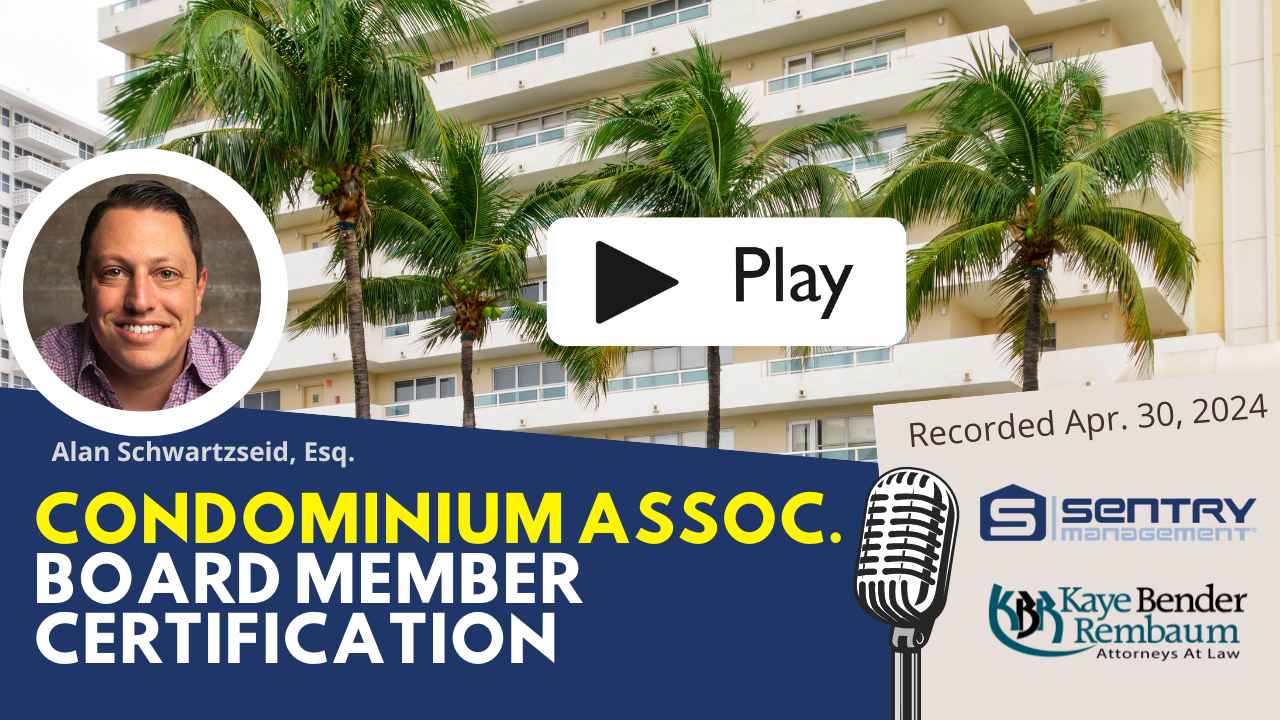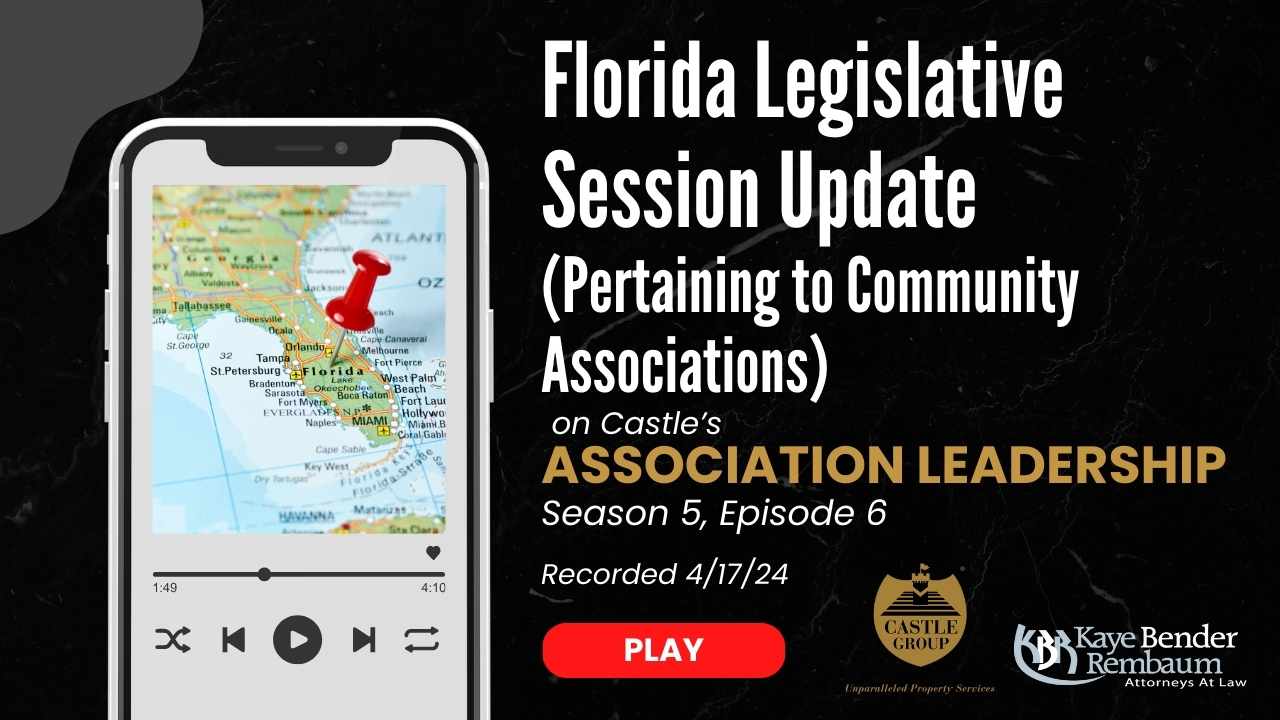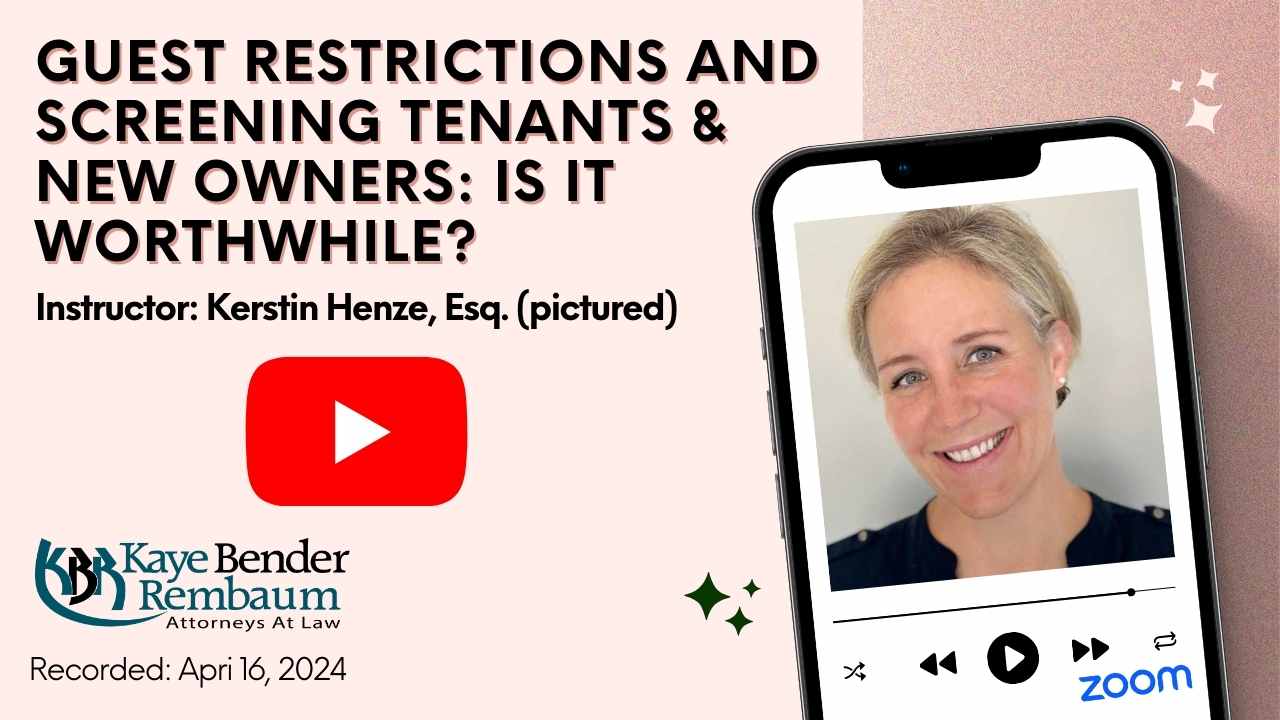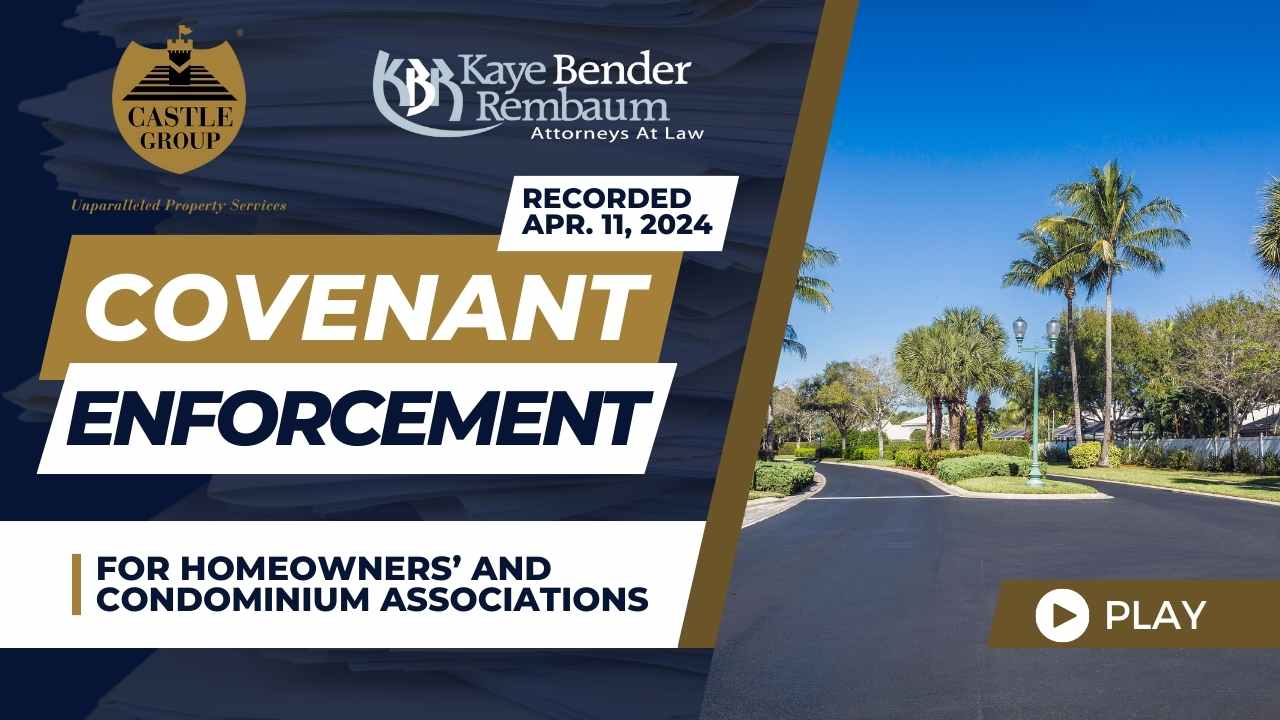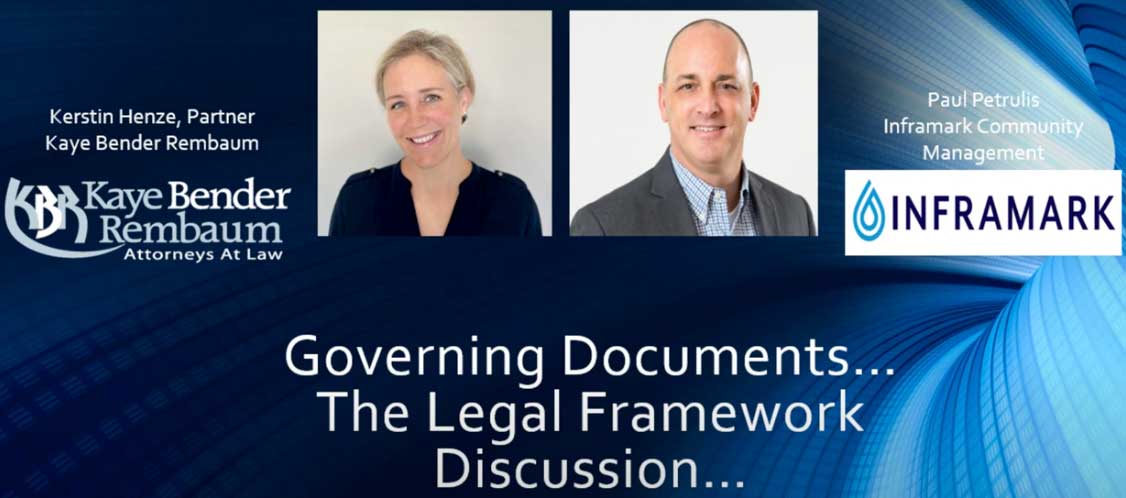**Important** Viewing this on-demand video WILL NOT satisfy Florida state requirements for new Board Members; NOR will this recorded version offer CEUs for CAMS. It is for informational purposes only and is not to be considered as legal advice. Should you have any questions, contact your association counsel.
Presented by Sentry Management | Provided by Kaye Bender Rembaum Instructor: Alan Schwartzseid, Esq.
This webinar covers the essentials of Condominium board membership, and is updated regularly to remain current with Florida legislative amendments. In addition, when viewed/attended live, this webinar satisfies Florida’s requirement for new condominium board members. It also serves as an excellent refresher course.

